Bishop Tunstall
Jump to navigation
Jump to search
UNFORGETTABLE CHARACTER QUOTES
DEFINING EPISODES | MEMORABLE SCENES
PHOTOS
Bishop Cuthbert Tunstall as played by Gordon Sterne
Born 1474, died 18 November 1559 at Lambeth Palace | |||
| Character's backstory: Was an English church leader, diplomat, administrator and royal adviser. He was "lucky" enough to have served as Bishop of Durham during the reigns of King Henry VIII, Edward VI, Mary I and Elizabeth I. Tunstall was an outstanding scholar and mathematician, he had been educated in England, spending time at both Oxford and Cambridge, before a six year spell at the University of Padua in Italy, from which he received two degrees. His Church career began in 1505, after he returned to England. He was ordained four years later. At the time of his ordination four years later he had caught the attention of the Archbishop of Canterbury, William Warham, who sponsored Tunstall's advancement and brought him to court. Tunstall was also a close to Wolsey, who recognized his potential to serve his country and diplomacy. Tunstall was close to all the great names of English humanism in the early sixteenth century, especially Sir Thomas More. The European humanist Erasmus greatly admired Tunstall's modesty, scholarship, and charm. Tunstall helped Erasmus in his publishing. Tunstall was a great publisher of many books including De arte supputandi libri quattuor (1522), which enhanced his reputation among the leading thinkers of Europe. This book would be used later by Mary Tudor and Catherine Parr as queen. Like More, Tunstall was on intimate terms with King Henry VIII. During the King's 'Great Matter', Tunstall defended Queen Katherine of Aragon, but not with the vigour or absolute conviction of Bishop Fisher. Tunstall had been bold enough to tell Henry that he could not be Head of the Church in spiritual matters and he may have been one of the four bishops of the northern convocation who voted against the divorce, but he recognized that the queen's cause was hopeless and never attempted opposition to the King. In fact, he attended Anne Boleyn's coronation. But Tunstall felt he could not keep quiet, he wrote a letter personally to Henry about the rejection of Christendom, and other matters that bothered him. Henry disagreed and refuted every point Tunstall made. These exchanges led to a search of Tunstall's home by order of the King, but no incriminating evidence was found. Rumor was that Sir Thomas More warned Tunstall in time to dispose of anything that might incriminate him. Tunstall agreed to take the oath, unlike More and Fisher. He and Archbishop Lee of York were required to explain to the imperial ambassador, Eustace Chapuys, and subsequently the very angry Katherine of Aragon the justification for the annulment of her marriage. They did not succeed in getting her to agree or acknowledge the fact that she was no longer queen. After the 'great matter' was resolved, Tunstall turned his loyalty back to the King. Tunstall was an executor of King Henry VIII's will. Tunstall would go on to serve in the reigns of Edward VI, Mary I, and Elizabeth I. It was during Elizabeth's reign that Tunstall refused to take Elizabeth's Oath of Supremacy and was subsequently arrested. He was deprived of his diocese in September 1559, and held prisoner at Lambeth Palace, where he died within a few weeks, aged 85. He was one of eleven Catholic bishops to die in custody during Elizabeth's reign. Tunstall was illegitimate at birth, although his parents later married and the irregular circumstances of his background were never held against him. Sharing a grandmother, Alice Tunstall, Tunstall was first cousin on his father's side to Queen Catherine Parr and her siblings. Tunstall was a close family friend after the death of Catherine's father, Sir Thomas. Catherine's mother, Maud, named Tunstall as one of the executors of her will. Gentility: illegitimate son of a courtier, Clergy Position: Bishop of Durham, Bishop of London, Archdeacon of Chester, Lord Privy Seal, diplomat Personality type: engaging man, loyal, ambitious Signature look: appears to be a bit too old in the series as Tunstall survived his cousin, Queen Catherine Parr by eleven years and died at age 85. Dressed in his purple clergy vestments. Endearing trait(s): prominent humanist, survivor of sixteenth century Tudor England, outstanding scholar and mathematician, reputation of virtue and intellect, modesty, charm. Annoying trait(s): Tunstall was afraid to stand up to Henry VIII, as most people in England were, he was very affected by the death of Sir Thomas More who he thought could have done more in life than death, stubborn | 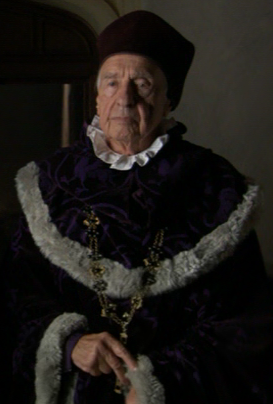
Click EasyEdit to update this page! (Don't see the EasyEdit button above? <a href="../#signin" target="_self">Sign in</a> or <a href="../accountnew" target="_self">Sign up</a>.)
| ||
CHARACTER CONNECTIONSFamily members: Father: Sir Thomas Tunstall of Thurland Mother: Eleanor Conyers Paternal grandmother: Alice Tunstall Brother: Brian Tunstall (died 1513 at battle of Flodden Field) Cousins: Catherine Parr, Anne Parr, William Parr Romance(s): none known of, never married. | Friends: Catherine Parr Anne Parr William Parr Sir Thomas More King Henry VIII Bishop Warham Bishop Gardiner Queen Katherine of Aragon Cardinal Wolsey Cardinal Reginald Pole Princess Mary Tudor (when Queen) - she released him from imprisonment and restored him as Bishop of Durham. Enemies: Faction of King Edward VI -- Tunstall did not agree with his council and Edward's religious reforms, he was somewhat discrete about his views, but still ended up in the Tower as a prisoner until Mary ascended as Queen. Edward Seymour, Earl of Somerset Princess Elizabeth Tudor (when Queen), The extent of the religious revolution under Edward VI caused him to reverse his views on the royal supremacy, and he refused to change them again under Elizabeth. At his age, he had already been through three religious reforms and supremacy acts under three monarchs, Henry VIII, Edward VI, and Mary I. |
UNFORGETTABLE CHARACTER QUOTES
|
DEFINING EPISODES | MEMORABLE SCENES
|
PHOTOS
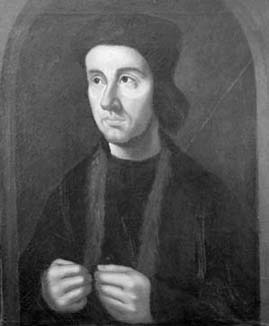 | 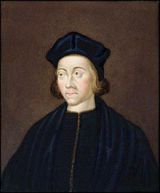 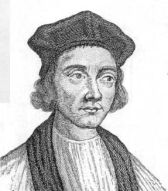 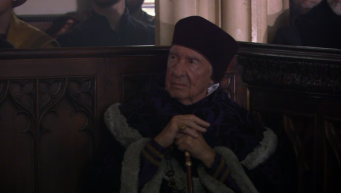 |
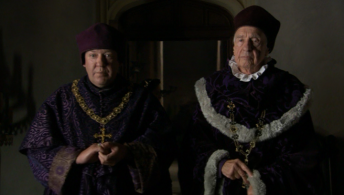 | 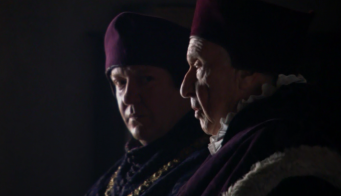 |
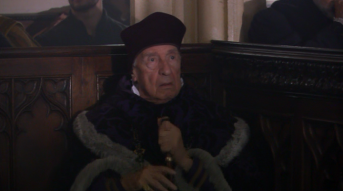 | 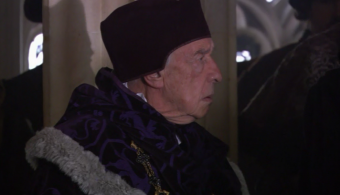 |
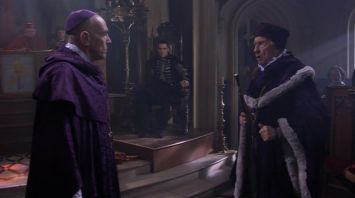 | 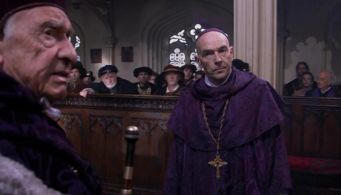 |
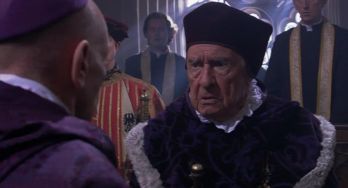 |